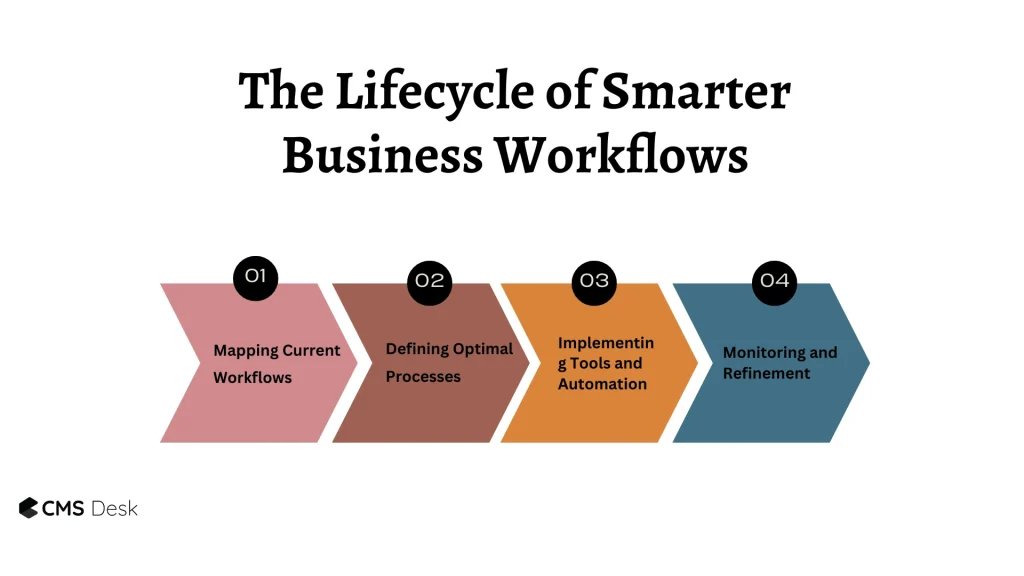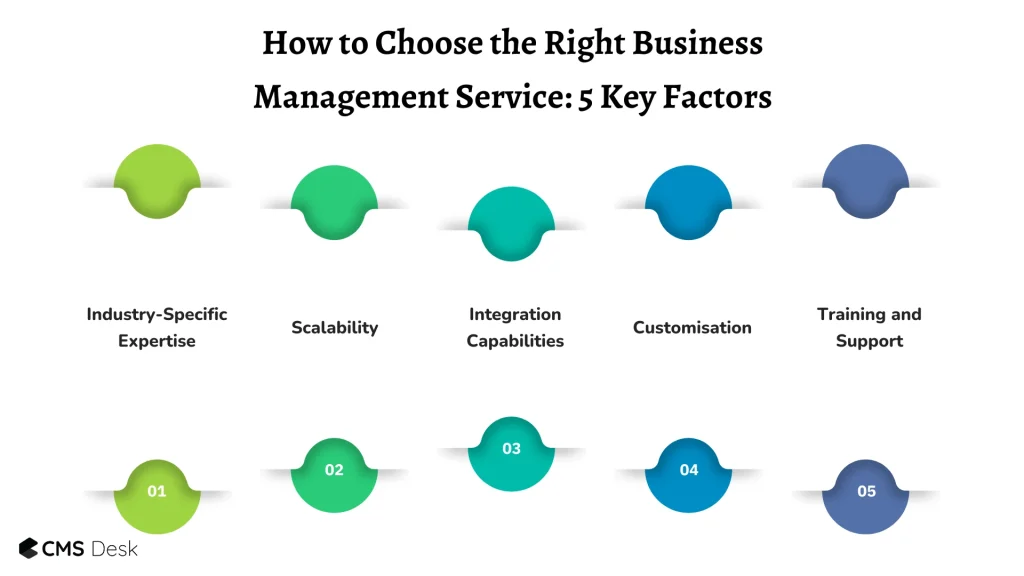In today’s increasingly complex and competitive business environment, companies must ensure that their operations are not just efficient but also aligned with strategic goals. This is where Business Management Services (BMS) come into play. These services provide structured frameworks, expert consultancy, and often digital tools to manage and enhance various aspects of business operations—from administration and human resources to finance, strategy, and logistics.
Business Management Services are designed to help organisations optimise performance, reduce costs, and gain a competitive edge. These services can be provided internally by a specialised team or outsourced to third-party experts depending on the business’s scale and specific needs. In industries such as construction, manufacturing, retail, and technology, BMS has become an indispensable tool for navigating operational challenges and capitalising on growth opportunities.
At their core, BMS is about enabling businesses to work smarter. They incorporate elements of planning, monitoring, analysis, and execution across various business functions, ensuring each component works cohesively toward common objectives.
Process Design in Business Management Services
One of the foundational aspects of Business Management Services is the design and continuous improvement of processes. Efficient processes are the lifeblood of a well-functioning organisation. They determine how smoothly operations flow, how quickly issues are resolved, and how consistently goals are achieved.
What Does Process Design Involve?
- Mapping Current Workflows: The first step in process improvement involves understanding how things are currently done within the business. This includes documenting each step of the workflow, identifying key touchpoints, and engaging with employees who are part of the process. This exercise helps uncover pain points, bottlenecks, and tasks that may be duplicated or unnecessary, providing a clear baseline for redesign.
- Defining Optimal Processes: Once the current processes are mapped, businesses can begin reimagining them. The goal here is to eliminate inefficiencies and align workflows with strategic business goals. This often involves reducing the number of steps, consolidating tasks, and ensuring processes are designed to adapt as the business evolves. Collaboration across departments is key to building workflows that are both efficient and practical.
- Implementing Tools and Automation: Technology plays a significant role in modern process design. Businesses can use digital tools to automate repetitive tasks such as data entry, reporting, or approvals. Automation not only reduces the risk of human error but also speeds up operations and frees up employees to focus on higher-value tasks. The right tools should be chosen based on their ability to integrate with existing systems and support scalability.
- Monitoring and Refinement: Process design is never a one-and-done exercise. Once a new process is implemented, businesses must track its performance using defined KPIs. Regular monitoring helps identify areas that still need improvement and ensures the new workflows continue to meet operational and strategic needs. Continuous feedback from employees and stakeholders is also critical to fine-tuning processes over time.
For example, in the construction industry, a poorly defined procurement or approval process can lead to project delays and increased costs. A business management service would analyse these workflows, propose a streamlined system, and implement tools to manage documentation, approvals, and resource tracking in real-time.
Process improvements not only reduce operational waste but also empower employees by giving them clear roles, structured workflows, and easy-to-use digital tools.

Top Benefits of Business Management Services
Business Management Services offer a range of strategic and operational advantages that translate directly into better performance and profitability. Here are the key benefits:
1. Improved Operational Efficiency
Business management services enable organisations to work more effectively by eliminating redundancies and streamlining workflows. These services often involve automation of time-consuming tasks, standardisation of procedures, and better alignment between departments. As a result, businesses can reduce downtime, complete tasks more quickly, and focus resources on higher-priority activities. Efficiency gains often lead to cost savings and improved service delivery.
2. Enhanced Strategic Focus with Business Management Services
When day-to-day operations are managed efficiently, senior leaders and managers can shift their attention toward long-term planning, innovation, and market expansion. Business management services often include strategic planning tools and frameworks that help leaders stay focused on their core mission while confidently delegating operational execution. This shift from reactive to proactive management significantly boosts business agility and long-term competitiveness.
3. Better Resource Allocation
Business management services play a key role in effective resource management in construction, ensuring that manpower, budget, and materials are strategically aligned with project demands. Instead of allocating time and money to low-value tasks, BMS enables businesses to make data-driven decisions about staffing, budgeting, and investments. This strategic alignment of resources supports improved performance, faster growth, and better returns on investment. Tools that support financial control through management accounting allow decision-makers to allocate budgets more wisely and respond quickly to performance changes.
4. Stronger Risk and Compliance Management
Regulatory compliance and risk mitigation are essential for business sustainability, especially in heavily regulated industries. BMS introduces standardised procedures, clear documentation trails, and accountability structures that help organisations identify, monitor, and address risks proactively. These services also ensure companies meet industry regulations and internal compliance standards through scheduled audits, reporting tools, and workflow validations.
5. Scalability
As organisations grow, their internal operations can become increasingly complex. Without structured systems in place, this complexity can lead to inefficiencies, communication gaps, and poor performance. Business management services provide scalable frameworks and tools that can grow with your business, ensuring that processes remain clear, efficient, and consistent as your company expands or diversifies.
6. Real-Time Decision Making
Modern business management tools provide access to real-time data dashboards, analytics, and reporting features. These insights allow leaders and managers to make quicker and more informed decisions. Whether it’s tracking performance, forecasting sales, or identifying bottlenecks in a project, timely data enables businesses to take proactive measures that improve outcomes and minimise disruptions.
Choosing the Right Business Management Services
With a wide range of services and solutions available, choosing the right BMS requires a clear understanding of your organisational needs, size, and growth ambitions.
Key Considerations:
- Industry-Specific Expertise: Not all business management services are created equal. Providers with deep expertise in your specific industry will understand the common challenges, regulatory standards, and workflow requirements relevant to your operations. This industry familiarity ensures that the solutions provided are practical, effective, and immediately applicable to your context.
- Scalability: A business management solution must be able to grow with your business. Scalable systems accommodate new departments, teams, or markets without requiring a complete overhaul. This future-proofing not only saves costs in the long term but also minimises disruption during periods of growth or organisational change.
- Integration Capabilities: Businesses typically use a variety of tools to manage operations, from CRMs and ERPs to accounting software and communication platforms. The right BMS should integrate seamlessly with your existing tech stack to avoid data silos, reduce manual entry, and ensure consistent, reliable information across all systems.
- Customisation: Every business is unique, and a one-size-fits-all solution may not suit your workflows. Look for services that can be customised to reflect your organisational structure, reporting requirements, and operational processes. Customisation ensures that the tools and frameworks you adopt truly support your goals rather than forcing your business to adapt to rigid systems.
- Training and Support: Transitioning to a new management system can be challenging. A reliable service provider should offer onboarding assistance, user training, and continuous technical support. For industries like construction, strategic HR in construction becomes essential for managing compliance, onboarding, and workforce development as part of broader business operations. This ensures smooth implementation, promotes employee adoption, and minimises downtime or productivity loss during the transition.
Choosing the right BMS is not a one-size-fits-all decision. It requires a strategic approach and a clear roadmap, often starting with a detailed assessment of existing processes and pain points.

Operational Excellence: Streamlining with Business Management Services
Streamlining operations isn’t just about cutting costs; it’s about making your organisation lean, agile, and prepared for both day-to-day tasks and long-term growth. Here’s how business management services can help:
1. Centralised Operations Hub
Centralising task management, documentation, and communication onto a single platform helps unify teams and eliminate inefficiencies. With all departments using the same system, organisations can prevent duplication of effort, ensure consistency across projects, and easily track progress. A centralised hub also improves visibility for leadership teams, allowing them to quickly identify bottlenecks and allocate resources more effectively. Streamlining vendor selection and purchasing through procurement process optimisation is another way BMS reduces waste and improves speed.
2. Automation of Routine Processes
Manual tasks such as data entry, invoice processing, or approval workflows can be time-consuming and prone to error. Business management services implement automation tools that handle these repetitive activities with speed and accuracy. Automation not only reduces the workload for employees but also accelerates turnaround times and improves overall productivity across departments.
3. Improved Team Coordination with Business Management Services
A lack of coordination between departments often leads to missed deadlines, miscommunication, and inefficiencies. Business management systems facilitate seamless collaboration by offering shared dashboards, real-time notifications, and integrated calendars. These features enable better alignment between team members, leading to improved execution, greater accountability, and more cohesive results.
4. Enhanced Visibility and Accountability
With digital task tracking and clearly defined responsibilities, it becomes easier to monitor progress and hold teams accountable. Managers can quickly see who is responsible for what, identify delays, and follow up where necessary. Enhanced visibility also promotes transparency across the organisation, encouraging proactive communication and helping resolve issues before they escalate.
5. Integration with Digital Tools
Today’s businesses rely on a range of digital tools to manage operations. An effective BMS should support integration with your existing platforms, from accounting software and HR systems to customer service platforms and project management tools. Integrations ensure data flows smoothly between systems, reduce errors from manual transfers, and create a more cohesive digital ecosystem.
6. Mobile Accessibility
Remote work and field-based roles are increasingly common, especially in industries like construction, logistics, and consulting. Cloud-based business management systems offer mobile access, allowing teams to stay connected, update project statuses, or upload documentation from any location. This flexibility enhances productivity, supports real-time communication, and ensures critical business activities are never delayed by location-based limitations.
For example, CMS Desk offers mobile check-ins, real-time reporting, and offline support, enabling construction site managers to stay connected and in control, even in areas with low connectivity.
The Bottom Line: Why Business Management Services are a Smart Investment
As businesses navigate digital transformation, economic uncertainty, and rising customer expectations, the importance of Business Management Services continues to grow. These services provide the structure, tools, and support necessary to build resilient, efficient, and scalable operations.
Whether you’re a small firm trying to systematise workflows or a large enterprise looking to scale, investing in the right business management solution can be the difference between stagnation and growth. Platforms like CMS Desk don’t just support your operations—they transform them.
If you’re ready to explore how a tailored business management system can benefit your company, get in touch with us today.
Frequently Asked Questions (FAQ)
1. What industries can benefit from business management services?
Business management services are versatile and can support various industries including construction, manufacturing, healthcare, retail, and IT. They help organisations improve process efficiency, reduce costs, and stay competitive by offering tailored solutions specific to industry challenges.
2. Are business management services suitable for small businesses?
Absolutely. Small businesses can gain significant value from these services. Business management consultants can help streamline operations, implement scalable systems, and offer strategic guidance that supports long-term growth and sustainability with limited resources.
3. How do I measure the ROI of business management services?
Return on investment (ROI) can be measured through improvements in efficiency, cost savings, enhanced productivity, and better project delivery timelines. Many service providers also offer performance tracking tools to monitor progress against key business goals.
4. What’s the difference between business management and project management services?
Business management services take a holistic approach to running an organisation—covering strategy, operations, finance, and growth planning. Project management services, however, are focused on the execution of specific projects, ensuring they meet scope, time, and budget constraints.
5. How long does it take to see results after implementing business management services?
The timeline varies depending on the complexity of the organisation and the scope of services used. However, many businesses begin to notice improvements in workflow efficiency and team productivity within 3–6 months of implementation.
Any questions? Get in Touch









